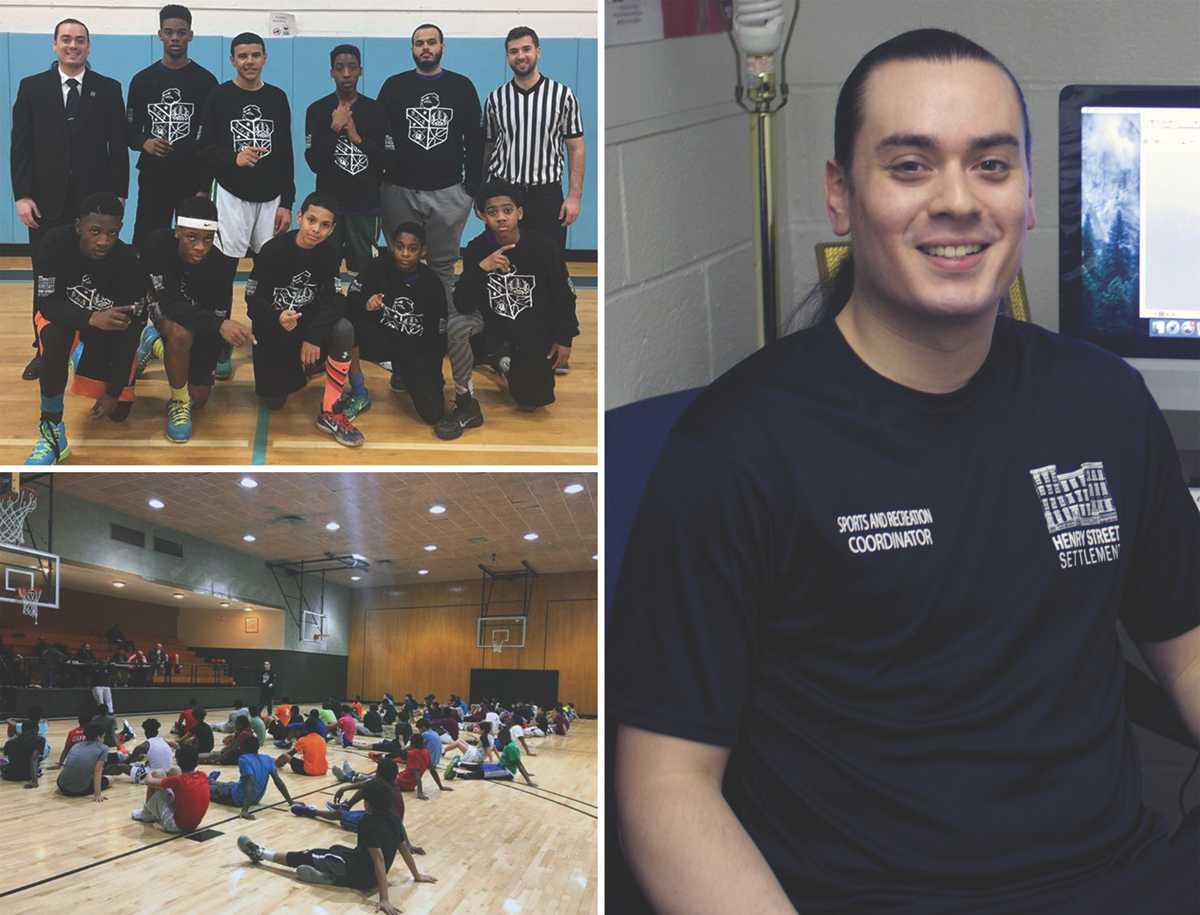Deep Roots at the Boys & Girls Republic
By Nicole Fogarty

When 11-year-old Luis Checa was elected mayor of Henry Street Settlement’s Boys and Girls Republic (BGR) by his fellow citizens in 1998, little did he know he’d still be at the Lower East Side community center nearly 20 years later. No longer mayor, today Checa is the Sports and Recreation Coordinator, serving as a role model for the current crop of citizens.
Wondering how an 11-year-old gets elected mayor? BGR is not a typical youth program; it is truly a republic. All participants are known as “citizens,” and expected to maintain order in their community. They vote for 14 elected officials, including mayor, city clerk, judge and comptroller. BGR laws are voted on at council meetings, and citizens who break them are “prosecuted” at court trials.
This unique model fosters independence, ownership, accountability – and confidence. “When I was first elected mayor, I was a shy kid. I had to run meetings; I couldn’t be shy anymore. It helped me grow so much,” said Checa.
After graduating from John Jay College of Criminal Justice with a degree in Public Administration in 2010, Checa returned to his BGR roots full-time in his current role, focusing his attention on the evening program, comprised of slightly older citizens ranging from ages 14 to 19. The evening program offers many sports activities, like basketball and flag football, as well as cooking and tutoring programs.
Using sports as an incentive, Checa ensures that academics are an integral part of the evening program. Citizens with poor grades must attend tutoring sessions in order to play sports.
Another incentive for academic achievement is BGR-branded hats and shirts which the citizens help design.
“We want these kids to want to work on their academics,” explained Checa.
He also expanded the self-government model to the evening program. “Self-government is such an important aspect of after-school, and we wanted those same principles in the evening program. We realized we could do it through sports and really give the kids control,” explained Checa, who wanted to be a professional basketball player when he was a kid, and knows that most citizens live and breathe sports..
Citizens are treated as professional athletes. Checa created a Players Association which holds meetings, runs Draft Night events, and enforces rules and fines for penalties and other infractions. If a citizen wishes to dispute the fine, they bring it to court, blending self-government with sports.
The combination of sports and self-government has powerful results in an area where some schools have dropout rates that reach 20 percent. Checa recalls a current participant, DJ, who as a young citizen struggled with an overly competitive personality and anger issues. Over more than a decade at BGR, D.J. learned to channel his competitive nature into leadership roles on and off the court, actively participating in self-government.
“He graduated from high school, works with youth at the University Settlement, and is looking forward to attending college after he ages out of the program this summer,” said Checa.
DJ is but one success story of BGR’s evening program. Staff members work to ensure that LES youth want to participate. For instance, events like Draft Nights have helped garner enthusiasm, contributing to the Flag Football League’s first-ever sold-out season.
Additionally, Checa runs a BGR Sports Facebook group, peppered with highlight reels (which he films and edits in his spare time), inspirational posts, scores and stats from previous match-ups, schedules of upcoming games and events, and more. The group has almost 800 members, connecting current and former citizens of all ages.
Checa’s BGR roots contribute to the evening program’s success, but he isn’t the only alum on staff—over half a dozen BGR employees are former citizens. They bring a unique blend of experience and familiarity to the table, propelling the program ever forward.
“This place is just like home. I was practically born here,” said Checa. “A lot of us grew up here. I know what the kids want because I wanted the same things when I was their age.”
